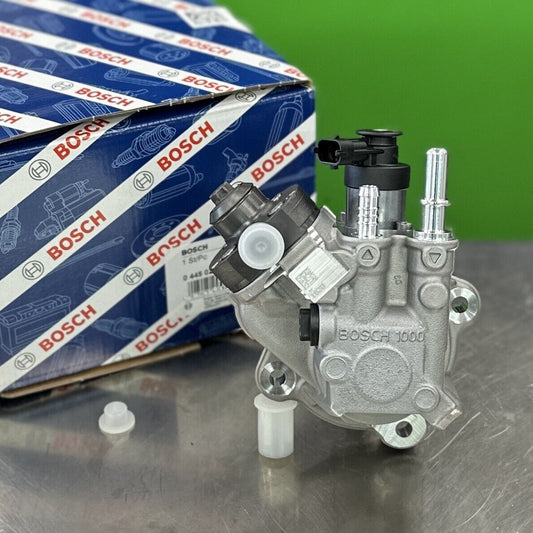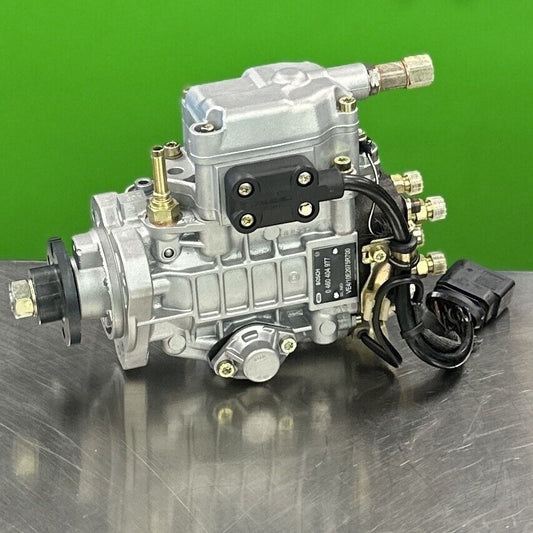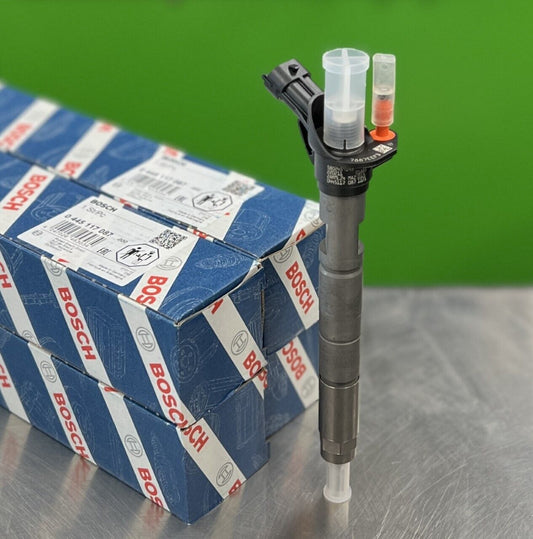Fuel Injector Myths Debunked
Fuel injectors play a crucial role in the performance and efficiency of an engine, but there are several misconceptions surrounding them that need to be debunked. Let's dive into some common myths about fuel injectors and shed light on the truth behind these misconceptions.
One prevalent myth is that fuel injectors never require maintenance. However, this is far from the truth. Fuel injectors can get clogged over time due to impurities in the fuel, affecting their performance. Regular maintenance, such as cleaning and inspection, is essential to ensure optimal functioning and prevent issues down the road.
Another misconception is that upgrading fuel injectors always results in improved performance. While upgrading injectors can enhance performance in some cases, it is not a guarantee. Factors like the engine's tuning, fuel system compatibility, and overall condition play a significant role in determining the actual performance gains from upgraded injectors.
It's also commonly believed that fuel injectors are immune to clogging. In reality, fuel injectors can get clogged due to various reasons, such as dirt, debris, or fuel additives. Clogged injectors can lead to poor engine performance, rough idling, and decreased fuel efficiency. Regular maintenance and using quality fuel can help prevent injector blockages.
Many people think that all fuel injectors are the same, but this is a myth. Fuel injectors come in different designs and qualities, impacting their performance and compatibility with specific engines. The right injector design and quality are crucial for optimal engine performance and fuel efficiency.
Lastly, there's a misconception that all fuel injector cleaners are equally effective. The truth is that the effectiveness of injector cleaning products varies depending on the formulation and the level of contamination in the injectors. It's essential to choose a reputable cleaner and follow the manufacturer's instructions for the best results.
Myth 1: Fuel Injectors Never Need Maintenance
When it comes to fuel injectors, there is a prevalent myth that they never require maintenance. However, this misconception can lead to serious issues with your vehicle's performance. Fuel injectors play a crucial role in delivering the right amount of fuel to the engine for combustion, ensuring smooth operation. Without proper maintenance, fuel injectors can become clogged or malfunction, affecting fuel efficiency and engine performance.
Regular maintenance of fuel injectors is essential to keep your vehicle running smoothly. Over time, deposits can build up inside the injectors, causing them to spray fuel unevenly or become blocked. This can result in poor fuel economy, rough idling, and even engine misfires. By neglecting maintenance, you risk damaging your engine and incurring costly repairs.
One common misconception is that fuel additives alone can keep fuel injectors clean and functioning optimally. While fuel additives can help prevent some buildup, they are not a substitute for professional maintenance. Cleaning fuel injectors requires specialized equipment and expertise to ensure thorough cleaning without causing damage.
Moreover, the quality of fuel used can also impact the maintenance needs of fuel injectors. Low-quality fuel may contain impurities that can accelerate injector clogging and reduce performance. By using high-quality fuel and following a regular maintenance schedule, you can prolong the lifespan of your fuel injectors and keep your engine running efficiently.
It's important to remember that fuel injectors are precision-engineered components that require proper care to function correctly. Neglecting maintenance can lead to decreased fuel efficiency, engine hesitation, and ultimately, engine failure. By debunking the myth that fuel injectors never need maintenance, you can take proactive steps to ensure the longevity and performance of your vehicle.
Myth 2: Upgrading Fuel Injectors Always Increases Performance
When it comes to the performance of a vehicle, the idea of upgrading fuel injectors is often viewed as a magic solution that guarantees a significant boost. However, this belief is not always grounded in reality. While upgrading fuel injectors can indeed enhance performance under certain circumstances, it is not a one-size-fits-all solution. Like any other component of an engine system, the impact of upgrading fuel injectors on performance is influenced by various factors.
One common misconception is that simply installing high-performance fuel injectors will automatically result in a noticeable improvement in the vehicle's power and efficiency. In reality, the effectiveness of upgrading fuel injectors depends on several key factors, such as the compatibility of the new injectors with the engine, the overall condition of the engine components, and the tuning of the vehicle's ECU (Engine Control Unit).
It's essential to consider the specific requirements of your vehicle before deciding to upgrade fuel injectors. While larger injectors may allow for more fuel flow, they can also lead to issues such as poor atomization and inefficient combustion if not properly matched to the engine's needs. Additionally, without the necessary adjustments to the ECU to accommodate the new injectors, the potential performance gains may not be fully realized.
Moreover, the misconception that upgrading fuel injectors always leads to increased performance overlooks the importance of a holistic approach to engine tuning. Achieving optimal performance involves considering various factors, including air intake, exhaust system, ignition timing, and fuel delivery. Upgrading fuel injectors should be part of a comprehensive tuning strategy rather than a standalone solution.
In conclusion, while upgrading fuel injectors can indeed enhance performance under the right conditions, it is not a guaranteed path to improved power and efficiency. To maximize the benefits of upgrading injectors, it is crucial to assess the compatibility with your vehicle, ensure proper tuning adjustments, and take a holistic approach to engine optimization. By dispelling the myth that upgrading fuel injectors always increases performance, you can make more informed decisions about improving your vehicle's overall capabilities.
Myth 3: Fuel Injectors Can't Get Clogged
When it comes to fuel injectors, one prevalent myth that needs to be addressed is the belief that fuel injectors are impervious to clogging. This misconception can have serious consequences for your vehicle's performance and overall health. Just like any other component in your car, fuel injectors are susceptible to getting clogged due to various reasons.
Imagine your fuel injector as a tiny, precision-engineered nozzle responsible for delivering the perfect amount of fuel into your engine. Now, picture this nozzle getting obstructed by dirt, debris, or even residue from low-quality fuel. The result? Your engine may experience misfires, reduced fuel efficiency, and overall poor performance. Ignoring the possibility of fuel injectors getting clogged is like turning a blind eye to a ticking time bomb under your hood.
So, what causes fuel injectors to clog? Factors such as carbon buildup, fuel contaminants, and even moisture can all contribute to the blockage of these crucial components. Without proper maintenance and care, your fuel injectors are at risk of becoming clogged, leading to a domino effect of engine issues.
Contrary to the myth, fuel injectors are not immune to clogging, and neglecting their maintenance can result in costly repairs down the road. Regularly cleaning and inspecting your fuel injectors can help prevent clogs and ensure that your engine runs smoothly and efficiently. Think of it as giving your car a breath of fresh air, allowing it to operate at its full potential without any hindrances.
Next time you hear someone claim that fuel injectors can't get clogged, remember that this is far from the truth. By understanding the risks associated with neglecting fuel injector maintenance, you can stay ahead of potential problems and keep your vehicle running like a well-oiled machine.
Myth 4: All Fuel Injectors Are the Same
When it comes to fuel injectors, the belief that all injectors are identical is a common misconception that can have serious implications for vehicle performance. In reality, fuel injectors vary significantly in terms of design, quality, and functionality, impacting how efficiently they deliver fuel to the engine.
Imagine fuel injectors as the precision instruments of a symphony orchestra, each playing a unique role in harmonizing the engine's performance. Just as different instruments contribute distinct sounds to a musical piece, diverse fuel injectors have specific characteristics that affect fuel atomization, spray pattern, and flow rate.
One key factor that sets fuel injectors apart is their design. Injector design influences how fuel is dispersed into the combustion chamber, affecting the air-fuel mixture and combustion process. Variations in design, such as pintle-style injectors versus disc-style injectors, can result in differences in fuel delivery accuracy and efficiency.
Moreover, the quality of fuel injectors plays a crucial role in determining their performance and longevity. High-quality injectors are precision-engineered to meet stringent standards, ensuring consistent fuel delivery and durability over time. On the other hand, low-quality or counterfeit injectors may fail prematurely, leading to engine misfires, rough idling, and decreased fuel efficiency.
It's essential to recognize that choosing the right fuel injectors for your vehicle involves more than just selecting any injector off the shelf. Factors such as flow rate compatibility, impedance matching, and injector size must be carefully considered to ensure optimal performance and compatibility with your engine's specifications.
In conclusion, the myth that all fuel injectors are the same is debunked when we delve into the intricate world of injector technology. Just as no two musical instruments produce the exact same sound, fuel injectors exhibit unique characteristics that significantly impact engine performance. By understanding the nuances of injector design and quality, vehicle owners can make informed decisions that enhance their driving experience and prolong the life of their engines.
Myth 5: Fuel Injector Cleaners Are Always Effective
When it comes to maintaining fuel injectors, one common belief is that fuel injector cleaners always do the trick. However, the reality is far from this myth. While fuel injector cleaners can be effective in some cases, their success largely depends on various factors.
Imagine a scenario where a single cleaning product is expected to work wonders on all types of fuel injectors. It's like expecting one size of shoe to fit everyone's feet perfectly – simply unrealistic. Fuel injectors come in different shapes, sizes, and materials, making it crucial to choose the right cleaner tailored to your specific injector type.
Moreover, the effectiveness of fuel injector cleaners can also be influenced by the level of buildup and contamination within the injectors. Just like trying to clean a heavily soiled dish with a mild detergent, expecting a universal cleaner to work miracles on severely clogged injectors may lead to disappointment.
Another key factor to consider is the quality of the fuel injector cleaner itself. Not all cleaning products are created equal, and some may contain subpar ingredients that fail to deliver the promised results. It's like expecting a cheap knock-off to perform as well as a high-end product – often leading to underwhelming outcomes.
Furthermore, the method of application plays a significant role in determining the success of fuel injector cleaners. Properly following the manufacturer's instructions, including the right dosage and application procedure, is essential for achieving optimal results. It's akin to following a recipe – deviating from the instructions may not yield the desired outcome.
In conclusion, while fuel injector cleaners can be beneficial when used correctly, assuming that all cleaners are universally effective is a myth that needs to be debunked. By understanding the factors that influence the efficacy of these products and making informed choices, you can ensure that your fuel injectors receive the care they deserve for optimal performance.
Frequently Asked Questions
-
Are fuel injectors prone to clogging?
Fuel injectors can indeed get clogged over time due to various factors such as impurities in the fuel, carbon buildup, or debris in the system. Regular maintenance and using quality fuel can help prevent clogging issues.
-
Do all fuel injectors perform the same?
No, not all fuel injectors are created equal. The design, quality, and compatibility of fuel injectors can significantly impact engine performance. It's essential to choose the right fuel injectors for your vehicle.
-
How often should fuel injectors be cleaned?
The frequency of cleaning fuel injectors depends on various factors such as the type of fuel used, driving conditions, and the age of the vehicle. It is generally recommended to clean fuel injectors every 30,000 to 45,000 miles to maintain optimal performance.
-
Are fuel injector cleaners effective in improving performance?
While some fuel injector cleaners can help improve fuel system performance by removing deposits and enhancing fuel atomization, their effectiveness may vary. It's essential to choose a reputable and compatible cleaner for the best results.
-
Can upgrading fuel injectors boost engine performance?
Upgrading fuel injectors can potentially improve engine performance, but it's not a guarantee. Factors such as engine tuning, compatibility, and overall condition of the vehicle play a crucial role in determining the actual performance gains from upgrading fuel injectors.



